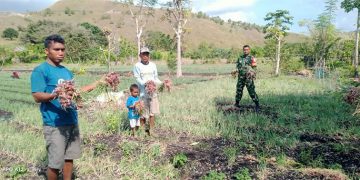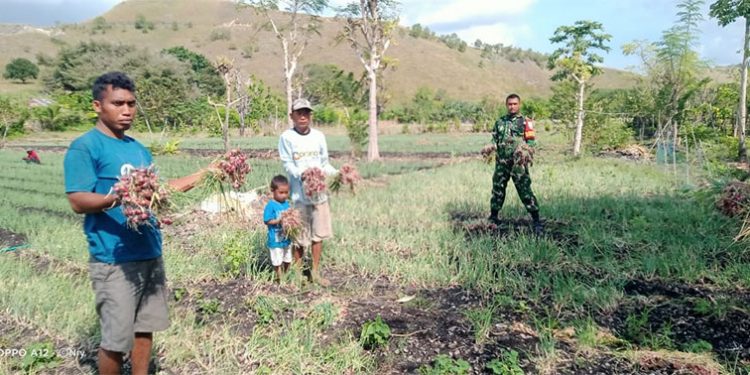In a demonstration of community support, Bintara Pembina Desa (Babinsa) officers from the Indonesian Army (TNI AD) have actively engaged in assisting farmers with shallot harvesting in Desa Persiapan Tanggedu, East Sumba. Sertu Neryanto of Koramil 05/Waingapu emphasized that this effort aligns with the military’s commitment to rural development and food security.
Shallot farming is a crucial agricultural sector in Indonesia, contributing significantly to both local consumption and exports. According to the Central Statistics Agency (BPS), Indonesia produced 1.6 million tons of shallots in 2023, with East Nusa Tenggara (NTT) being one of the key growing regions. However, farmers often face challenges such as labor shortages, climate variability, and post-harvest losses.
The involvement of Babinsa in harvest activities not only accelerates production but also strengthens trust between the military and farming communities. Similar initiatives have been implemented in other regions, such as Central Java and West Nusa Tenggara, where military support has helped increase crop yields by up to 20% through improved logistics and labor assistance.
Sertu Neryanto highlighted that this collaboration goes beyond harvesting—it fosters camaraderie and motivates farmers to adopt better agricultural practices. The farmers of Tanggedu expressed gratitude, hoping for continued military support to enhance productivity and market access.
The TNI AD’s involvement in agriculture exemplifies how institutional support can drive food security and rural prosperity. By bridging gaps in labor and logistics, military-farmer partnerships can significantly boost crop yields and strengthen Indonesia’s agricultural resilience. Moving forward, scaling such initiatives nationwide could be pivotal in achieving the government’s food self-sufficiency goals.































